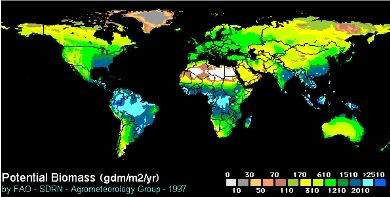South East Asian nations well placed to tap into biofuel potentials - Shell
 Southeast Asian countries are well-placed to tap into the biofuel potentials as they have rich biomass assets that can be turned into ethanol, biodiesel and solid biofuels, according to an expert on fuels technology, interviewed by Bernama. Malaysia, Thailand and the Philippines are already leading the development of alternative fuels, all of whom have either started introducing bio-components into their national fuel pool or have firm plans to do so, said Eric G. Holthusen, the Asia-Pacific fuels technology manager for Shell Global Solutions.
Southeast Asian countries are well-placed to tap into the biofuel potentials as they have rich biomass assets that can be turned into ethanol, biodiesel and solid biofuels, according to an expert on fuels technology, interviewed by Bernama. Malaysia, Thailand and the Philippines are already leading the development of alternative fuels, all of whom have either started introducing bio-components into their national fuel pool or have firm plans to do so, said Eric G. Holthusen, the Asia-Pacific fuels technology manager for Shell Global Solutions."These countries already have biofuel strategies as well. In the case of Malaysia, I think the country's biofuel policy sets out a good path... makes it much more predictable, and we see where it is going," Holthusen, who is based in Kuala Lumpur, told Bernama in an interview here. "Other countries in the region with their rich biomass assets seemed well placed to join this trend," he said.
Even though, as we have said before, in the long run, South East Asia has far less potential for bioenergy exports than Africa and Latin America, it does have resources that can substantially diminish its energy dependence on imported fuels. Particularly Malaysia, Indonesia and Papua New Guinea will be "biofuels superpowers", part of a kind of "Green Opec".
Holthusen was in Singapore to talk about "Bio and Synthetic Fuels: An Alternative for Sustainable Mobility" at a seminar organised by the Institute of Southeast Asian Studies (ISEAS) yesterday.
There is still a long way ahead, however, before much more advanced fuel technologies are available in the region, he said.
Newer technology will be able to produce what he called "third-generation" biofuels where just about any plants or parts of plant can be turned into liquid fuel (in contrast to "first generation" biofuels that are less sustainable.)
In Malaysia, the world's top palm oil producer, a total of 32 biofuel manufacturing licences have been approved, which could have been more if not for the government's decision to freeze the issuance of new licence.
Holthusen, however, shared the concern about the use of food crops to produce biofuels, and spoke of the need to move away from using food crops to produce fuels.
"But it is still very early days. For the next 10 years or so, maybe we have to use food crops for biofuels as well because the technology is not yet so well developed that we can use plant waste material straight away," he said.
He stressed, however, of the need to ensure that growth in cultivation of biomass for fuel does not cause damage to the ecosystem nor compete with food production.
"I see it rather as a transition. We use food crops in a transition phase, which might be acceptable because there is enough of them (in the region), and there is enough palm oil available," he said.
"But in the long run, we can use alternatives and newer technology that use plant waste and there is a lot of plant waste biomass in tropical countries... and you can use every plant you see and turn it into fuel," he added.
Holthusen said part of the technology is already available in Malaysia through Shell.
At its plant in Bintulu, Sarawak, Shell has already been producing liquid fuel from gas since a decade ago.
"Which is one of the steps (towards third-generation biofuel)... what you need is a plant that produces gas from biomass (so that the gas can be turned into liquid fuel such as diesel)," he said, adding that Shell will soon begin construction of a world-scale plant for synthetic fuel at the facility.
Looking ahead, Holthusen forsees Southeast East Asian countries playing an important role in the biofuel industry.
"There is big opportunity to grow crops... plants that can be turned into biofuels and there's a lot of experience in the palm oil industry and palm oil is a very well established crop which can be used to produce biofuel. Looking at all those aspects, I see that biofuels may play a big role in Southeast Asian economies," he said.
 -------------------
-------------------
 Spanish company Ferry Group is to invest €42/US$55.2 million in a project for the production of biomass fuel pellets in Bulgaria.
The 3-year project consists of establishing plantations of paulownia trees near the city of Tran. Paulownia is a fast-growing tree used for the commercial production of fuel pellets.
Spanish company Ferry Group is to invest €42/US$55.2 million in a project for the production of biomass fuel pellets in Bulgaria.
The 3-year project consists of establishing plantations of paulownia trees near the city of Tran. Paulownia is a fast-growing tree used for the commercial production of fuel pellets.









0 Comments:
Post a Comment
Links to this post:
Create a Link
<< Home